90 percent of the world’s properties still don’t use a proper hotel rate management software despite the potential revenue uplift it could give of over 20 percent. Why? Because it is hard to do.
To do it right, hundreds of thousands of pricing decisions would need to be taken every year. Curiously, those 90 percent who don’t have a proper solution mostly use a manual entry spreadsheet that can't forecast anything. Ideally hotels should be trying to guess what customers are actually willing to pay but it takes some complex statistics and heavy science to get close. In short, to do revenue management in a smart way is too costly and time consuming for individual hotels to achieve. But there are a handful of businesses out there that can help...
We thought we would get an expert to shine some light on all the murkiness so we sat down with the founder of a startup that is helping hotels earn more money and save themselves time in the process - Jens Munch of disruptive revenue management startup Pace (previously Prix):
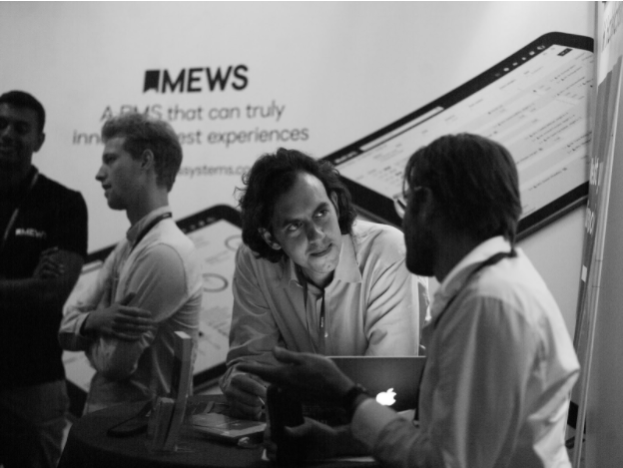 Jens Munch - CEO of Pace
Jens Munch - CEO of Pace
Isn’t true revenue management for hotels impossible to achieve?
Absolutely. Nonetheless, most hotels still have a lot of catching up to do. The hardest part of being a hotel is that you never know whether you will be fully booked or half empty. Understanding the flow of demand and interest in your hotel is a never ending process and you have to be on your toes everyday to learn how to adapt to the changes and understand where demand is going and what it is connected to.
Are you doing a good job marketing? Are you getting the right reviews? Is your online strategy working? Where is the demand coming from? At what speed are bookings flowing into your property? We think that all of these things are connected by the idea of velocity or pace. It is the reason why we now call ourselves Pace - because demand is always changing.
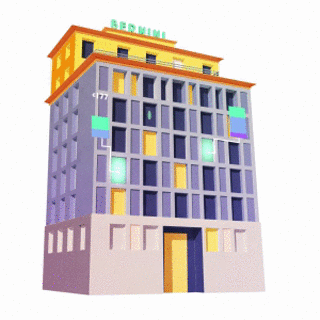
What are the best revenue managers in the industry getting right?
The best guys get the fundamentals right. These are:
1) knowing forecasting and where the hotel will be next month or 3 months down the line and
2) understanding channels and segments.
Knowing where you need to end up and where you should focus your energy to get the biggest impact is crucial. We think that changing your price is the best way to make an impact. We have noticed that the best-in-class guys also tend have a few things in common:
1) They think that rate shopping is something you do in the last 5 minutes of your day and that it is not fundamental to revenue management.
2) They all think that forecasting is fundamental and that it should be the primary driver of one's actions.
3) They don’t spread themselves too thin by looking at too many data points as they are wary of analysis paralysis.
4) Interestingly, the best performers tend to change prices more frequently as they have a tool that helps them make price changes faster. We have seen that users of our software change their prices 5 times more frequently than their peers.
Isn’t the best human revenue manager in the world still better than any technology?
Technology will never be able to make subjective decisions or be able to keep in mind more nebulous concepts like what kind of hotel do I want to be? Or what type of customers do I want to attract? Those are not quantitative decisions. Humans are better at big picture pattern detection and strategy. Perception and intuition come naturally to us. Like knowing that my hostel shouldn’t charge €500 for bunk beds...
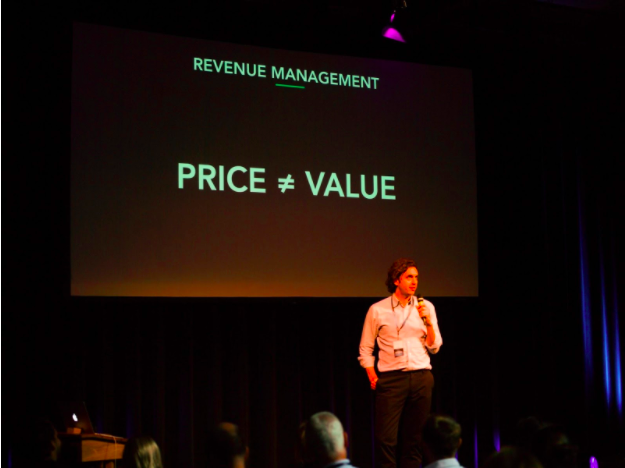 Jens Munch talking pricing at the Hotel Technology Revolution Forum
Jens Munch talking pricing at the Hotel Technology Revolution Forum
Your science and engineering teams previously worked with airline pricing. What lessons can hotels learn in revenue management from the airlines?
Revenue management (or yield management) was invented by the airline industry 10 to 20 years before it appeared in the hotel industry. But since its arrival, the technology has evolved at a faster pace as hotels are, unlike airlines, not as hindered by complex regulation and heavy legacy infrastructure. Hotels are lucky in that they have better access to cloud infrastructure with more seamless 2 way connections via APIs - using the Mews PMS is a case in point.
Nonetheless, hotels can still pick up a trick or two from the airlines. For example, over the last 5 years airlines have shifted into real time pricing and that is what we are trying to bring to the hotel industry. That means that instead of, for example, being crude and saying this December’s pricing should simply copy last December’s strategy, hotels can become more like a self-driving car and adjust their price every meter of the way based on changes in demands and inputs. Hotels can constantly adapt just like what the airlines are already doing. In fact, hotels could even leapfrog the airline industry in terms of adoption of real time pricing and revenue management.
Isn't pricing for hotels much more behavioural and emotional than when buying a more functional product like a flight? How do you build an algorithm around human emotions and desires?
Let’s be clear, we don’t dictate to hotels to charge one price or the other. We don’t assume that we know something about the emotional engagement with your hotel. We just make you are aware of the fact that, for example, if you want to move your occupancy from 80 to 85 percent you may potentially lose money as to get to that higher rate would require you to lower your prices to such an extent that it’s not worth it. We help make the connection between price and demand come alive for you.
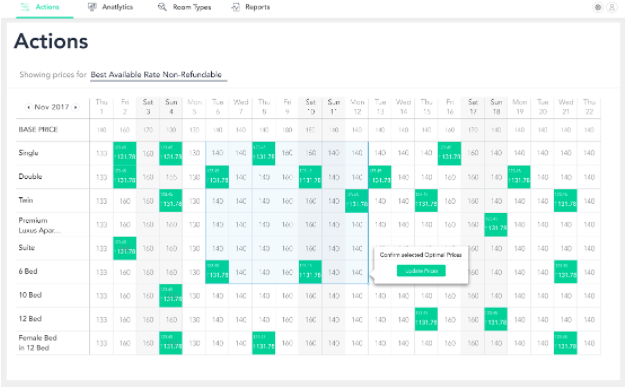
An example of pricing options via Pace
Paradoxically, we think that a lot of the industry make revenue management both too easy and too hard. You get told you need to look at everything and you end up not drawing any clear conclusions from all that data. Instead, we are urging hotels to go back to basics and to spend 5 to 10 minutes every morning assessing how many people will be staying in the property (occupancy) over the next 30 days and, from this data, being able to see whether it makes sense to lower prices to boost that occupancy rate. The reality is, it does not always make financial sense to do it!
It sounds simple but we have an entire team of PhDs who have worked for years on airline pricing and even they find it incredibly challenging to make sense of the data. That is our job - to take the data and give you the simple conclusions you need.
Could you tell us a bit more about your science team?
My co-founder John Paul Clarke is our chief scientist. He has spent decades teaching mathematics and optimisation at MIT and Georgia Tech as well as consulting for the airline industry, including using algorithms to improve luggage handling at airports around the world, calculating optimal flight paths out of airports to conserve fuel and improving machine learning at NASA.
In short, our team is looking at hotel data sets and working out what the underlying patterns and behaviours are. What are the connections between price and bookings? Or day of the week and bookings? The list goes on. Importantly, although we use the entire history of your pricing we weight the algorithms more in favour of the most recent bookings (real-time), which is how we deal better with fast changes.
So our team build dozens of these algorithms and then blend them together to produce an ensemble forecast. Think of our system like a financial trading platform where each algorithm is competing with each other for time and space and where the ones with the best results win.
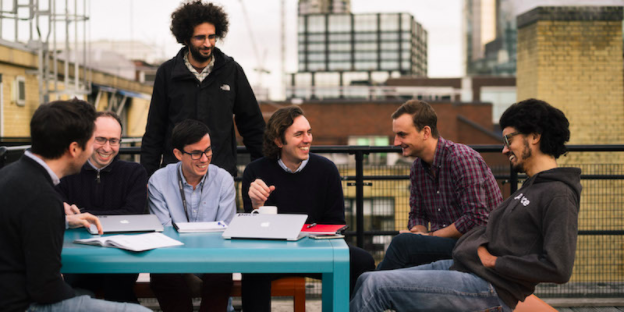
What makes your algorithms smarter and better than your rivals? How do you differ?
There are only 2 or 3 companies (eg. Duetto and IDeAS) in the world that do real scientific analysis of big data in hotels and actually generate algorithms from that. Most other revenue management systems don’t even have a chief data scientist. It is a very different role to a CTO. If you aren’t working with one of these few companies, you might as well just put your data into Excel and use the Excel forecasting function.
At Pace, we wanted to take the hard science approach and package, bundle and deliver it in such a way that even a child could understand it and finally make it a pleasant experience.
You worked at iZettle. What key lessons did you learn at iZettle that are relevant for hotels?
Big boring POS companies think that the only thing that is missing from their product that stops smaller companies from using it is the pricing. I learnt at iZettle that that is not the case. So many small businesses used iZettle and it became clear that it wasn’t that they couldn’t pay for a more expensive POS but, rather, that those other products were too complex to use and clunky. Even once they had trained themselves to use it, it was never clear what they had to do and the software was not engaging at all.
Another important thing I learnt, beyond pricing, is that smaller businesses care about contract lengths. Offering a 1 month contract with free trial and no strings attached makes a big difference.
Why do you think 90 percent of hotels don’t care about revenue management?
It’s not that hotels don’t care it’s just that they don’t want to sign up to a long term contract with a distant salesforce, have to do two weeks of training, go through a complicated integration process, spend hours every week inputting forecasts manually and then have to wait 3 months until the system learns what is going on and generate results. Make it simple and frictionless!
Why did Square, iZettle and Shopify succeed in their areas? It’s not that there were no POS options before…
In your recent talk at the Hotel Technology Revolution Forum you mentioned a revenue uplift of 20 percent that hotels are missing out on. Could you expand on that?
We don’t have the data to be able to produce a statistically solid figure but, anecdotally from speaking with industry operators, 20 percent is what a good revenue manager will add. If you are not doing any revenue management today, then hiring a revenue manager will get you a 10 percent improvement in RevPAR. If they then have good forecasting and price recommendations that can then add another 10 percent to that. So we have seen that a good revenue manager coupled with software like Pace can give over 20 percent uplift in sales.
I’m a hotel manager and the idea of Artificial Intelligence and machine learning is terrifying and seems borderline irrelevant for my business of delivering guest experiences? Convince me why this isn't so?
Machine learning is all around us so I wouldn’t be put off by the big scary concepts of AI. For example, basic cruise control on a car is, technically, machine learning. To be honest, I prefer the term ‘augmented intelligence’. For a hotel manager, it actually translates into smaller and more tangible benefits. It might be as simple as getting an email every morning with the metrics that are most interesting to you and not some long generic report generated via Excel that takes 30 minutes to look through. The augmented intelligence we offer is about saving you that time sifting through irrelevant data. It’s not about handing over control to some scary tech beast.
To us, machine learning is not about taking away control but helping you get where you want to go. Whether it’s the machine learning of Google Maps telling you the best route you should take to reach your favourite restaurant or the machine learning of Pace that suggests to a hotel manager whether they should move their prices up or down. The choice is still yours…
How can Pace get better? What feature do you get asked for the most?
We are nowhere near done with our mission to improve forecasting and price recommendation. It’s a challenging journey so the barrier to entry is high for what we are doing. For us it’s about keeping that focus and not allowing ourselves to get dragged into complexity. We focus on two things :
1) simplicity
2) generating hard conclusions from the data.
Most people get excited about the prospect of a better understanding of channels, which we will add soon. Where is a hotel’s demand and sales coming from and how we can show that to hotels in a better way?
Hotels deserve modern state-of-the-art technology and no other industry manually dumps batch-files for anything important. We are already looking at moving beyond API with websockets to become even more real-time.
But the simple stuff is what people love the most. People want to know how to move their prices.
Many hotels don’t trust technology and are suspicious of the mythical golden goose of revenue management. How do you disarm the haters?
We aren’t afraid of being wrong and we don’t think we know everything. We do think we know about numbers and know a few things about how to make a beautiful and user friendly product. It’s about having a conversation with hotels to see if there are any ways in which we could do some tests and find out what may work better. From there it quickly becomes clear that we are all on the same side. We never go into meetings and tell people that this is the right way of doing things. We simply ask if hotels would like to see data in a different way and to see forecasts that they have not seen before. We show them their property in a completely different light. In the end, we start to allow hotels to earn more revenue, save them hours of time and deliver happier customers.
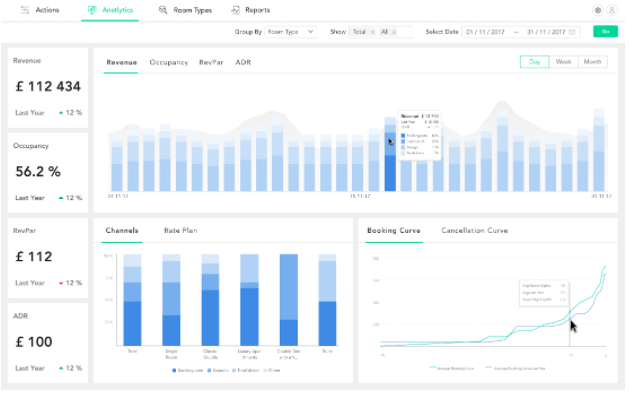
The Pace revenue management dashboard
A reality for hotels is that overactive sales people can be ill disciplined around rates. How would you recommend hotel’s instil discipline in sales teams?
There are too many emotional and knee jerk reactions by hotel sales teams to changes in demand when there shouldn’t be. It is understandable, we humans are biased and subjective by nature. But if we act on these impulses every day, we are likely to end up with a suboptimal situation as opposed to optimising our revenue.
One analogous example is a medical score card developed by a doctor in the US several years ago designed to detect heart attacks. After answering the same 12 questions, all patients are given a score as to how likely they are to have a heart attack. It turned out that, by using the generic questionnaire and score card, doctors were getting far better results in diagnosing patients at risk of heart attacks than their previous individual assessments. So simply by having a formalised and scientific process can deliver much better results. Much like for heart attack risk forecasting, bringing more structure into revenue management is the biggest low hanging fruit in an industry riddled with bias and subjectivity.
In revenue management, there are so many different things happening at any given moment that the question should become - what can we do in every situation that is the same? We can look at the forecast first and see where we are going to end up as that is the first thing we need to know in order to build a strategy. In practice, every morning we can use software to look at where demand for our hotel actually is and what the forecast is for the next fortnight and, from that, we can generate three tasks to perform that will optimise our revenue management. It removes a lot of the guess work.
You once worked as a war-photographer in Iraq - any interesting anecdotes from staying in hotels there?
They probably aren’t fit to be shared but we stayed at The Palestine Hotel in central Baghdad. Journalists from all over the world were staying in this one place. It was astonishing to witness that, throughout the whole war, many businesses just continued operating as if there was no war and the hotels were no exception. Room service and bellhops at The Palestine were always working flawlessly.
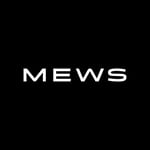
Author
Mews

Essential hotel technology for general managers
Download now
Hospitality hot takes straight to your inbox
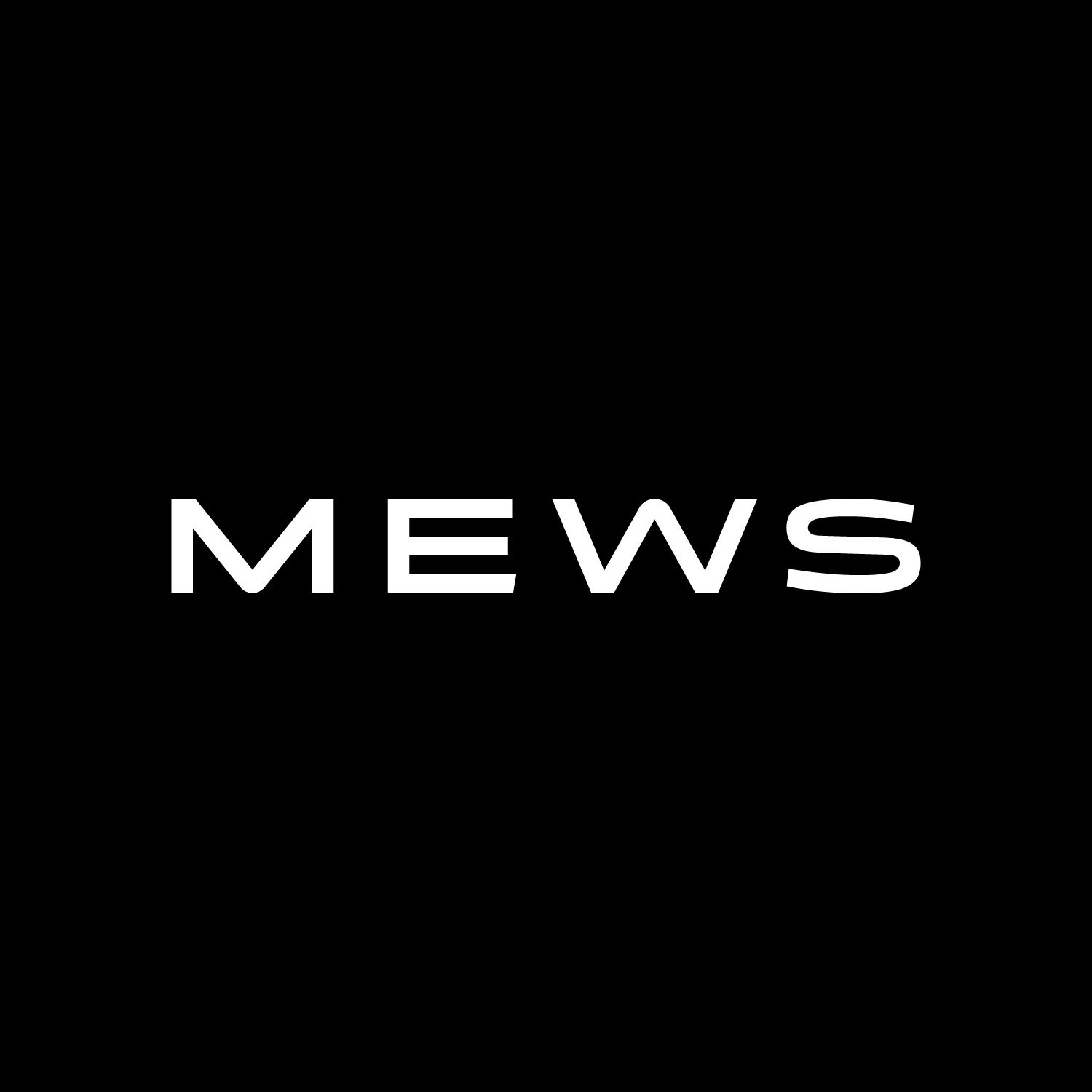
.jpg?width=624&height=555&name=GLAMPING%20(1).jpg)


.webp)